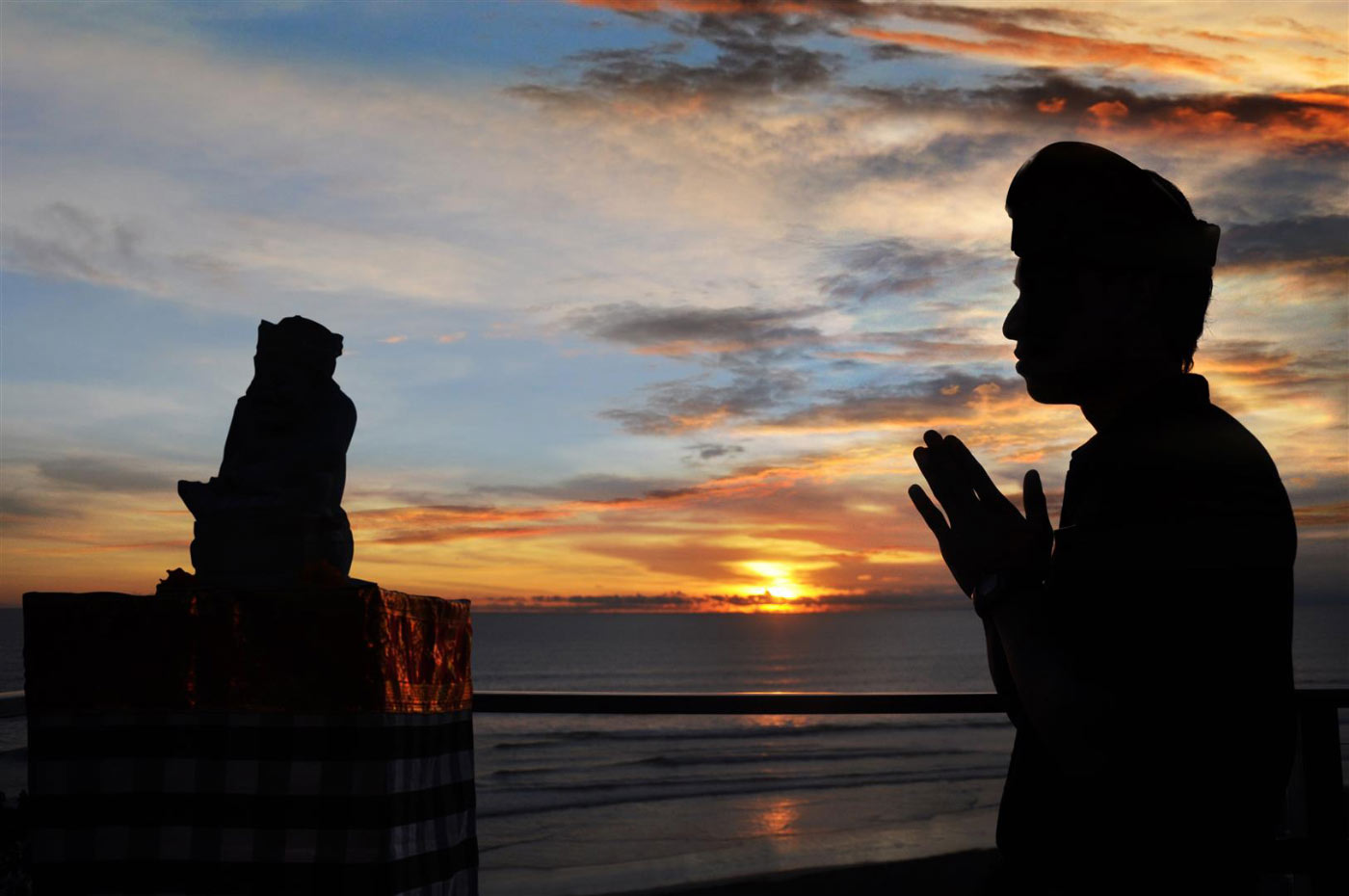New Year’s celebrations around the world are usually defined by merriment, fireworks, and cheering crowds. In Bali, however, it’s the complete opposite.
Considered to be the most important and sacred Hindu holiday of the year, Bali’s Nyepi Day is a day of silence. Everything on the island comes to a standstill. No one is allowed in the streets, no businesses are open, no entertainment, no transportation – even the busy airport shuts down for 24 hours. It is truly Bali’s single most unique day.
What is Nyepi Day?
Nyepi Day is the Balinese Hindu New Year. It is based on the Caka or Saka calendar, which is one of the calendars Balinese abide by. Nyepi literally means “to keep silent,” in the Balinese language, and it is 24 hours of complete silence for every human being living in Bali, whether you’re a local or a tourist.
Every March of every year, Balinese people spend a day of compulsory quietness with the purpose of purification. Nyepi is considered to be the start of a new beginning, and it is a day the Hindu Balinese dedicate to connect deeply with God. It is done so with fasting, prayer, and meditation. Themes of love, patience, truth, generosity, kindness, and forgiveness are usually the most covered themes in contemplation.
Nyepi Day is determined as the day after the dark moon of the spring equinox, which is when the day and night are almost equal in duration. Nyepi day is not just one day of rituals and ceremonies, however, but it consists of 6 days of traditional practices.
An interesting reason for the day of silence is actually based on mythology. Ancestors of Balinese people actually practice the day of silence to drive out malevolent spirits that have lurked on the island for the past year. The day of silence is used to influence these spirits into believing there are no people on the island, and thus, causing these spirits to flee.
The ancient practice continues to live on and has become the biggest holiday in Bali, as well as being a public holiday in the whole of Indonesia. Symbolically, each Banjar (village) in Bali creates giant sculptures of monsters or what they call, “Ogoh-Ogoh,” to symbolize these bad spirits. Weeks prior to Nyepi Day, you will see these villages adorned with these giant sculptures, and on the day before Nyepi, they are paraded on the streets in what is known as the Ogoh-Ogoh Parade.
Days Leading to Nyepi Day and the 6 Rituals
The anticipation of Nyepi Day begins days prior to the actual day itself. Here are the rituals held by Balinese people before the day of silence:
The Melasti Ritual
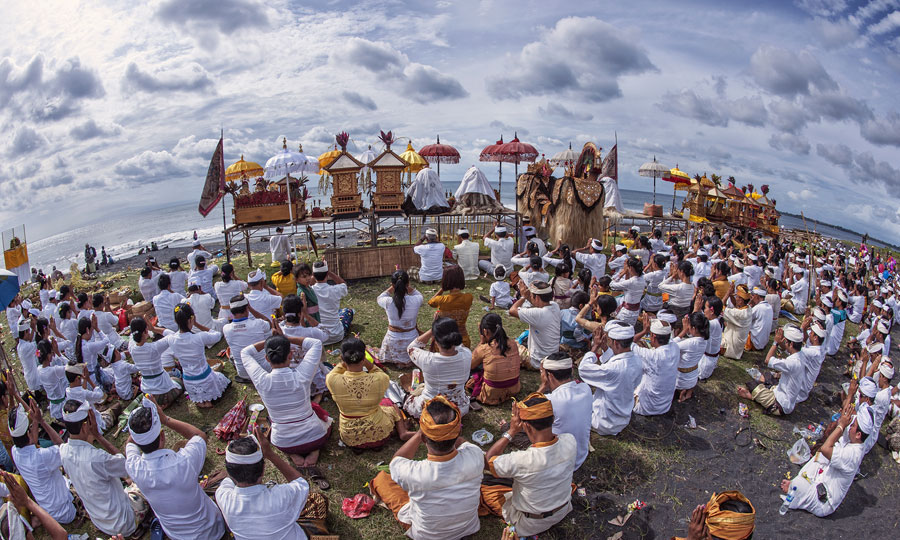
The first ritual is practiced in the days leading to Nyepi Day is the Melasti ceremony. These are ceremonies that involve cleansing processes where people bring artifacts and hold them alongside the coastal waters of Bali. The ritual intends to purify oneself of impurities and cleanse the soul of all past negativities, casting them into the ocean.
The Bhuta Yajna Ritual
The day before Nyepi begins in the morning with a ritual called “pengrupukan.” This ritual starts with prayers in the family temples, where family members make loud noises with pots, pans, and instruments at home. This ritual is said to be done to chase away the malevolent spirits lurking around the island.
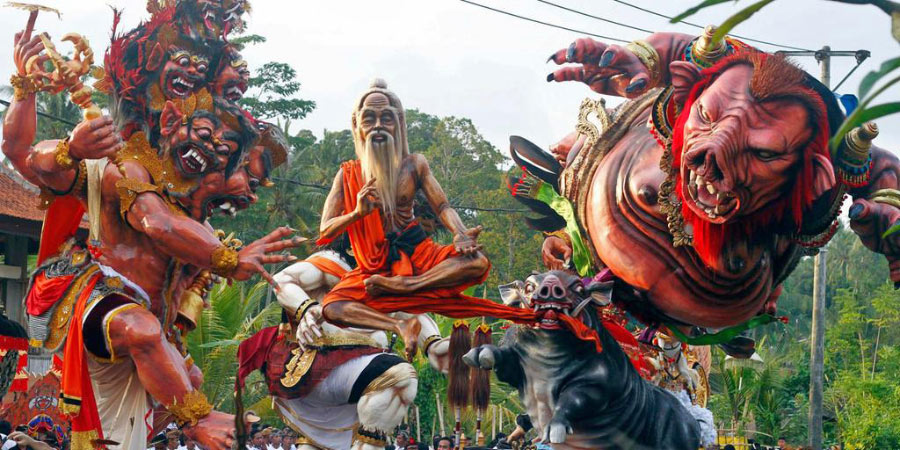
Occurring also on the eve of Nyepi is the Ogoh-Ogoh Parade. Remember the giant monster sculptures in each village? Well, on the day prior to Nyepi, they are paraded into the streets, where they are brought to central locations. The biggest of these locations is the soccer field found on Monkey Forest Road. The parade starts at 3 pm and ends at the central location at around 5 pm, where the sculptures are hoisted atop bamboo sticks, and carried down the road to “compete” with one another in simulated fights.
After which, they are then brought back to their villages, where they are burned.
The Nyepi Day Rituals
On Nyepi Day itself, there are 4 major prohibitions to Balinese Hindus abide by:
- Amati Geni (no electricity, fire, or light)
- Amati Karya (no work or activity)
- Amati Lelunganan (no traveling)
- Amati Leanguan (no revelry or entertainment)
Compulsory silence is required on Nyepi Day. People in Bali are not allowed to go out of their homes except for emergency purposes, no one is allowed on the streets, and no cars, motorcycles, or public transportation are allowed. All shops, restaurants, resorts, banks, and every establishment are closed.
Hotels are required to cover their windows, and any sign of light is also not allowed. While some homes and hotels can use low lighting inside, it must not be seen from the outside, and therefore, homes must also cover their windows to prevent the light from being seen.
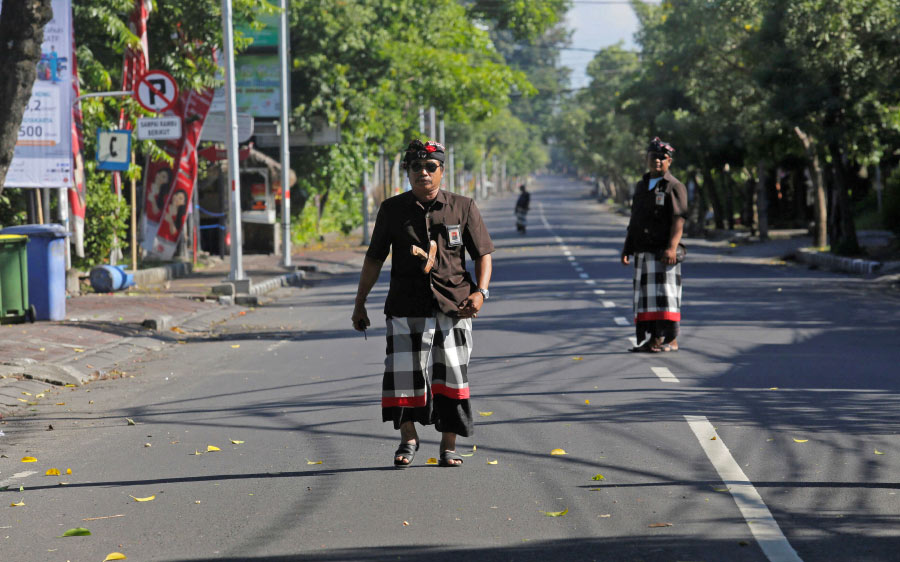
To make sure everyone in Bali follows these rules, local guards, who are known as Pecalang (Nyepi Police) are deployed all around the island.
There are also no flights scheduled to and from the Ngurah Rai Airport in Denpasar on Nyepi. Locals and tourists are advised to use this day as a day of contemplation and prayer, as well respect the prohibitions set in place during the sacred day.
The Yoga/Brata Ritual
This ritual entails spending 24-hours of meditation. Balinese locals of Hindu faith partake in the Brata ritual from 6:00 am to 6:00 am of the following day.
The Ngembak Agni Ritual
The day after Nyepi Day is when social activity can pick up once again. Families and friends visit each other’s homes to ask forgiveness from one another, and to perform religious rituals together. The youth of Bali also perform the Omed-Omedan ritual, otherwise known as The Kissing Ritual, to celebrate the New Year.
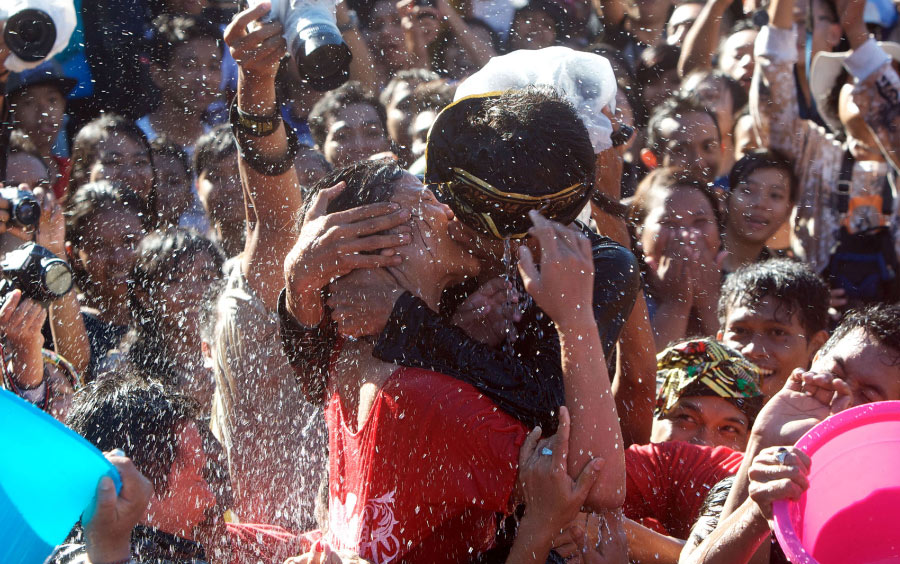
The Dharma Shanti Ritual
Finally, the recitation of ancient scriptures is performed to close and mark the end of the very sacred week.
Nyepi Day in Bali is a unique tradition unlike any other in the world. Welcoming the New Year in silence is an experience most people have never done, and if you would like to witness this yearly tradition, then heading to Bali weeks prior to Nyepi Day is the most ideal.
Due to the restrictions brought about by the COVID-19 pandemic, Bali’s religious authorities have confirmed that this year’s Nyepi Day on March 14 will strictly be practiced only on the day itself. The annual Ogoh-Ogoh Parade has also been canceled for this year. Meanwhile, religious ceremonies will be limited to a maximum of 50 people.
Related article: A Glimpse into the Beauty of Balinese Culture


